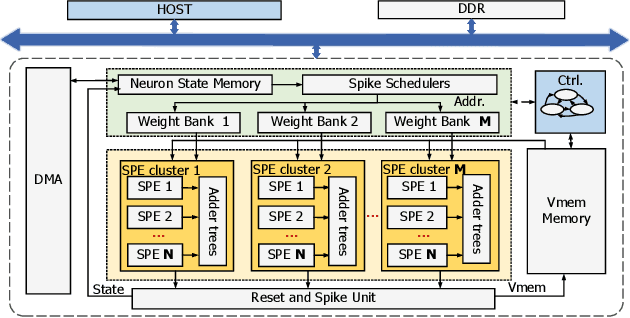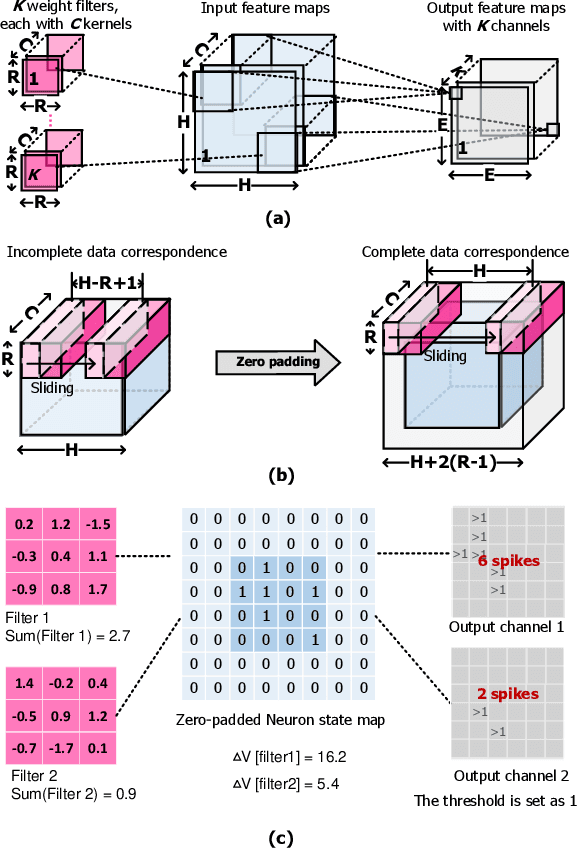Skydiver: A Spiking Neural Network Accelerator Exploiting Spatio-Temporal Workload Balance
Paper and Code
Mar 14, 2022



Spiking Neural Networks (SNNs) are developed as a promising alternative to Artificial Neural networks (ANNs) due to their more realistic brain-inspired computing models. SNNs have sparse neuron firing over time, i.e., spatio-temporal sparsity; thus, they are useful to enable energy-efficient hardware inference. However, exploiting spatio-temporal sparsity of SNNs in hardware leads to unpredictable and unbalanced workloads, degrading the energy efficiency. In this work, we propose an FPGA-based convolutional SNN accelerator called Skydiver that exploits spatio-temporal workload balance. We propose the Approximate Proportional Relation Construction (APRC) method that can predict the relative workload channel-wisely and a Channel-Balanced Workload Schedule (CBWS) method to increase the hardware workload balance ratio to over 90%. Skydiver was implemented on a Xilinx XC7Z045 FPGA and verified on image segmentation and MNIST classification tasks. Results show improved throughput by 1.4X and 1.2X for the two tasks. Skydiver achieved 22.6 KFPS throughput, and 42.4 uJ/Image prediction energy on the classification task with 98.5% accuracy.
 Add to Chrome
Add to Chrome Add to Firefox
Add to Firefox Add to Edge
Add to Edge